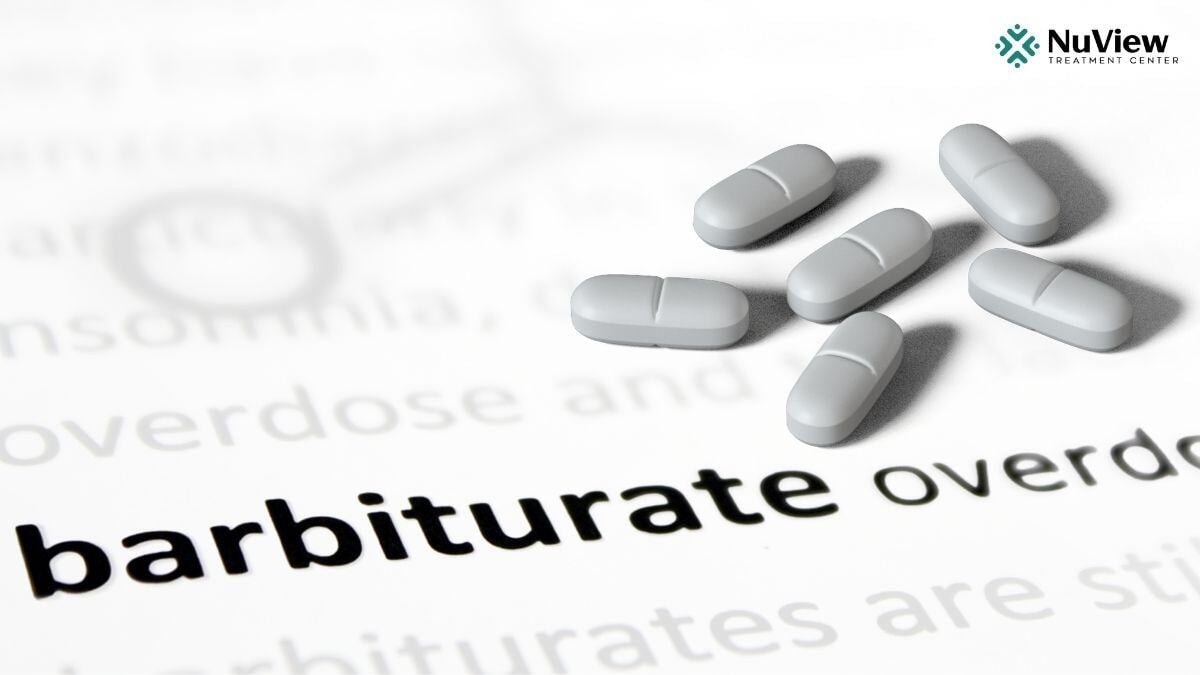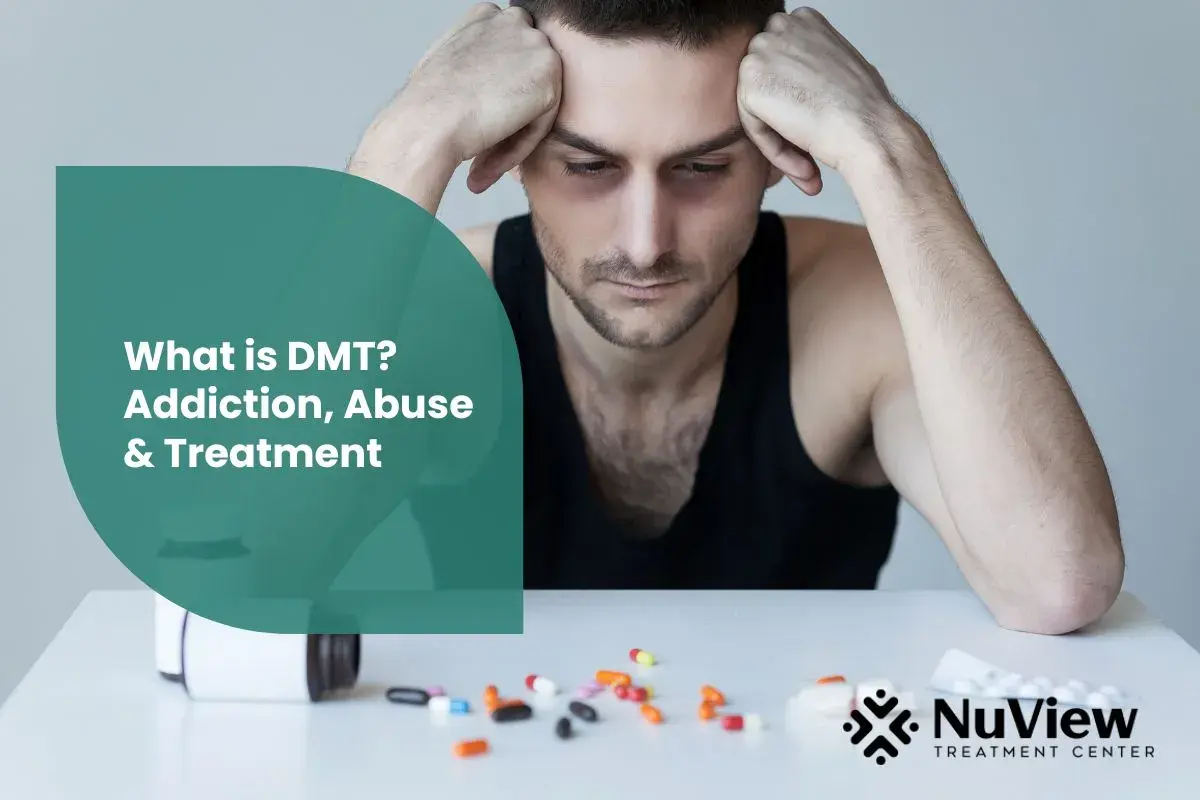Barbiturates are depressant drugs. In that, they are sedative-hypnotic medications, which can give rise to relaxing and drowsy effects. For these reasons, they were used in the treatment of migraines, seizures, and sleep difficulties. However, with advancing knowledge, it became evident that they carried a high risk of misuse and are less common today.
In this blog, we shall seek to understand what are barbiturates, their effects, their risks, and barbiturates use in modern settings.
What are Barbiturates?
Barbiturates are sedative-hypnotic medications. They are sedatives, as they relax the mind and body. They are hypnotic as well, as they give rise to drowsy effects.
Barbiturates work by releasing a chemical called gamma-aminobutyric acid or GABA in the brain, which, in turn, slows down the activity of the nerve cells. Therefore, barbiturate side effects can include drowsiness, reduced coordination, and, in some cases, cognitive impairments.
Barbiturates have been used in the treatment of epileptic and non-epileptic seizures. They have also been used for anesthetic purposes.
What are the 8 Barbiturates?
The 8 available barbiturates are as follows:
1. Amobarbital:
Its chemical name is 5-ethyl-5-isopentylbarbituric acid. It is used in the treatment of sleep difficulties and seizures. It is also used as a sedative.
2. Butalbital:
Its chemical name is 5-allyl-5-isobutylbarbituric acid. It is commonly available in aspirin, caffeine, and codeine. It is used in the treatment of migraines as well as tension headaches.
3. Methohexital:
Its chemical name is 5-allyl-1-methyl-5-(1-methyl-2-pentenyl) barbituric acid. It is mainly used for anesthetic purposes.
4. Pentobarbital:
Its chemical name is 5-ethyl-5-(1-methylbutyl) barbituric acid, sodium derivative. It is used as pre-anesthesia. It is also used in the treatment of sleep difficulties and during the onset of seizures.
5. Phenobarbital:
Its chemical name is 5-ethyl-5-phenylbarbituric acid. It is mainly used in the treatment of epilepsy.
6. Primidone:
Its chemical name is 5-ethyl-5-phenyl-hexahydropyrimidine- 4,6 dione. It is mainly used to prevent seizures.
7. Secobarbital:
Its chemical name is 5-allyl-5-(1-methylbutyl)barbituric acid. It is used in the treatment of sleep difficulties, however, very rarely.
8. Vinylbital:
Its chemical name is 5-(1-methyl butyl)-5-vinyl barbituric acid. It is used to treat migraines and epilepsy as well as for anesthetic purposes.
How Barbiturates Work?
Barbiturates are a class of depressant drugs. This means that their primary mechanism of action is to inhibit the central nervous system.
Barbiturates bind to the γ-aminobutyric acid (GABA) channels in the brain. These are chloride channels, and when barbiturates bind to them, they stimulate these channels. This leads to an influx of chloride ions into the nerve cells, making them resistant to any nerve impulses. This is because chloride increases the negative charge and depresses these nerve cells.
Due to the enhancement of the effect of GABA, barbiturate side effects often include drowsiness and sleepiness.
Get Started With Nuview Treatment Center
Our dedicated professional staff is here to guide you or your loved one on the journey to lasting recovery, offering support every step of the way.
Medical Uses of Barbiturates
Barbiturates have medical uses, however, they are used less frequently these days for the same:
- Sedation – Barbiturates are sedative-hypnotic medication, hence, they are used as sedatives.
- Pre-anesthesia – Barbiturates are used for pre-anesthetic purposes, as this helps ease the entire process of general anesthesia. Barbiturates examples of pre-anesthesia are pentobarbital and so on.
- General anesthesia – Barbiturates tend to be used for general anesthetic purposes.
- Sleep difficulties – Barbiturates relax the mind and body, and give rise to drowsy feelings. Hence, they are used in the treatment of sleep difficulties like insomnia.
- Convulsions – To treat the onset of convulsions during meningitis, cholera, or even in eclampsia during pregnancy, barbiturates can be used.
- Seizures – Barbiturates are also used in the treatment of epileptic and non-epileptic seizures, including partial and generalized tonic-clonic seizures and cortical focal seizures.
What Conditions Do Barbiturates Treat?
Certain conditions that barbiturates treat are as follows:
- Preventing seizures and even after the onset of seizures
- Treating sleep difficulties like insomnia
- Intracranial hypertension or cases of increased cerebrospinal fluid in the skull
- Anxiety
- Alcohol withdrawal
However, it must also be kept in mind that barbiturates are being less and less frequently used in the treatment of health conditions. The reason being, they are habit-forming and addictive, leading to barbiturate misuse. Barbiturate misuse is extremely serious and in extreme conditions can also lead to death. While barbiturate-related deaths are low, especially with timely treatment and care, barbiturates still carry too great a risk.
Barbiturates vs Benzodiazepines
Barbiturates and benzodiazepines both produce relaxing and sedative effects by binding to GABA and depressing the nervous system. They are both used to treat conditions like anxiety, sleep disorders, seizures, and for anesthetic purposes.
However, benzodiazepines are more commonly used than barbiturates are they are considered to be safer, as they are less addictive and also more potent. In fact, for certain purposes like sedation, benzodiazepines have replaced barbiturates.
Get Started With Nuview Treatment Center
Common Effects and Side Effects of Barbiturates
Some of the common effects of barbiturates are as follows:
- Sleepiness
- Mild sedation
- Reduced anxiety
- A mild high or euphoria
On the other hand, barbiturates come with unwanted effects as well:
- Depressed mood
- Confusion
- Irritability
- Lowered blood pressure
- Lowered heart rate
- Can stop breathing
- Liver problems
- Can lead to addiction and dependence
- Prenatal exposure can lead to disruptions in fetal development
Risks and Dangers of Barbiturates
While barbiturates have certain therapeutic and medical uses, the risks and dangers of barbiturates are too many. As barbiturates are a class of depressants, even small differences in doses can lead to extremely dangerous circumstances. For instance, they can excessively depress the central nervous system. This can lead to life-threatening conditions like coma.
They can interact with other drugs and give rise to life-threatening conditions. Barbiturates can interact with opioids, alcohol, antidepressants, antihistamines, and other over-the-counter medications and quickly turn fatal. Barbiturates overdose symptoms include low breathing, unresponsiveness, and even death if not treated quickly.
Barbiturates can be highly habit-forming and addictive. So, they can lead to severe dependence, overdose, and in extreme cases, even death.
Barbiturate Overdose: Signs, Symptoms, and Treatment
Barbiturates are highly habit-forming and addictive. Therefore, the risk of misuse and overdose is very high. Some signs and symptoms of barbiturate overdose are as follows:
- Changes in alertness
- Cognitive difficulties, like problems with thinking
- Decreased judgment
- Decreased coordination
- Low breathing rates or shallow breathing
- Slurred speech
- Sluggishness
- Staggering
- Drowsiness
- Coma
Barbiturate overdose is an emergency condition and must be attended to immediately. In case of any of these signs, calling the nearby emergency services or other emergency services (like 9-1-1 in the U.S.) is very important.
The treatment for barbiturate overdose is:
- Activated charcoal is administered orally or by the tube.
- Medicines are provided to treat the symptoms.
- Breathing support is provided, which can be oxygen through the lungs or even a ventilator.
- In extreme cases, dialysis is performed to remove barbiturates from the blood.
Yet, the risks of barbiturate overdose are too high. It can lead to pneumonia, kidney injury, other injuries due to falls while intoxicated, miscarriage during pregnancy, coma, and even death.
Barbiturates in Modern Society
Barbiturates were popular from the 1900s to the 1970s. However, their use has decreased since then, given the risks and dangers.
However, in modern society, they still have their uses. They are considered to be Schedule II, III, and IV depressants under the Controlled Substances Act. They are only available under prescription and come in the form of pills, capsules, enemas, solutions, and so on. They are used to treat conditions like anxiety, insomnia, and seizures before surgery. They are also used for anesthetic purposes.
The awareness regarding barbiturates is growing and their use is becoming less common, as they continue to be replaced by safer medications like benzodiazepines, which are also more potent.
Frequently Asked Questions (FAQs)
Why are barbiturates dangerous?
Barbiturates are highly habit-forming and addictive. This can increase the risk of a barbiturate overdose, a life-threatening condition.
What is the most famous barbiturate?
Phenobarbital is the most famous barbiturate. It is mainly used to prevent seizures and to stop them in case of onset.
What are barbiturates now?
Barbiturates are depressant drugs, which are mainly used to treat conditions like seizures and intracranial pressure, and also for anesthetic purposes.
Can you overdose on barbiturates?
Yes, barbiturates overdose symptoms include shallow breathing, slurred speech, and loss of consciousness. It is, in fact, a very dangerous, life-threatening condition.
- What are Barbiturates?
- What are the 8 Barbiturates?
- How Barbiturates Work?
- Medical Uses of Barbiturates
- What Conditions Do Barbiturates Treat?
- Barbiturates vs Benzodiazepines
- Common Effects and Side Effects of Barbiturates
- Risks and Dangers of Barbiturates
- Barbiturate Overdose: Signs, Symptoms, and Treatment
- Barbiturates in Modern Society
- Frequently Asked Questions (FAQs)
- What are Barbiturates?
- What are the 8 Barbiturates?
- How Barbiturates Work?
- Medical Uses of Barbiturates
- What Conditions Do Barbiturates Treat?
- Barbiturates vs Benzodiazepines
- Common Effects and Side Effects of Barbiturates
- Risks and Dangers of Barbiturates
- Barbiturate Overdose: Signs, Symptoms, and Treatment
- Barbiturates in Modern Society
- Frequently Asked Questions (FAQs)
Get Help Today!
Everyone is Welcome Here and We All Have Your Back
Your healing journey deserves a personalized approach. At NuView, we integrate expertise in behavioral therapy, mental health, and substance use treatment to create a customized recovery plan tailored to your unique needs.
Connect with our Admissions Specialists today.







Written By
Dr. Ryan Peterson